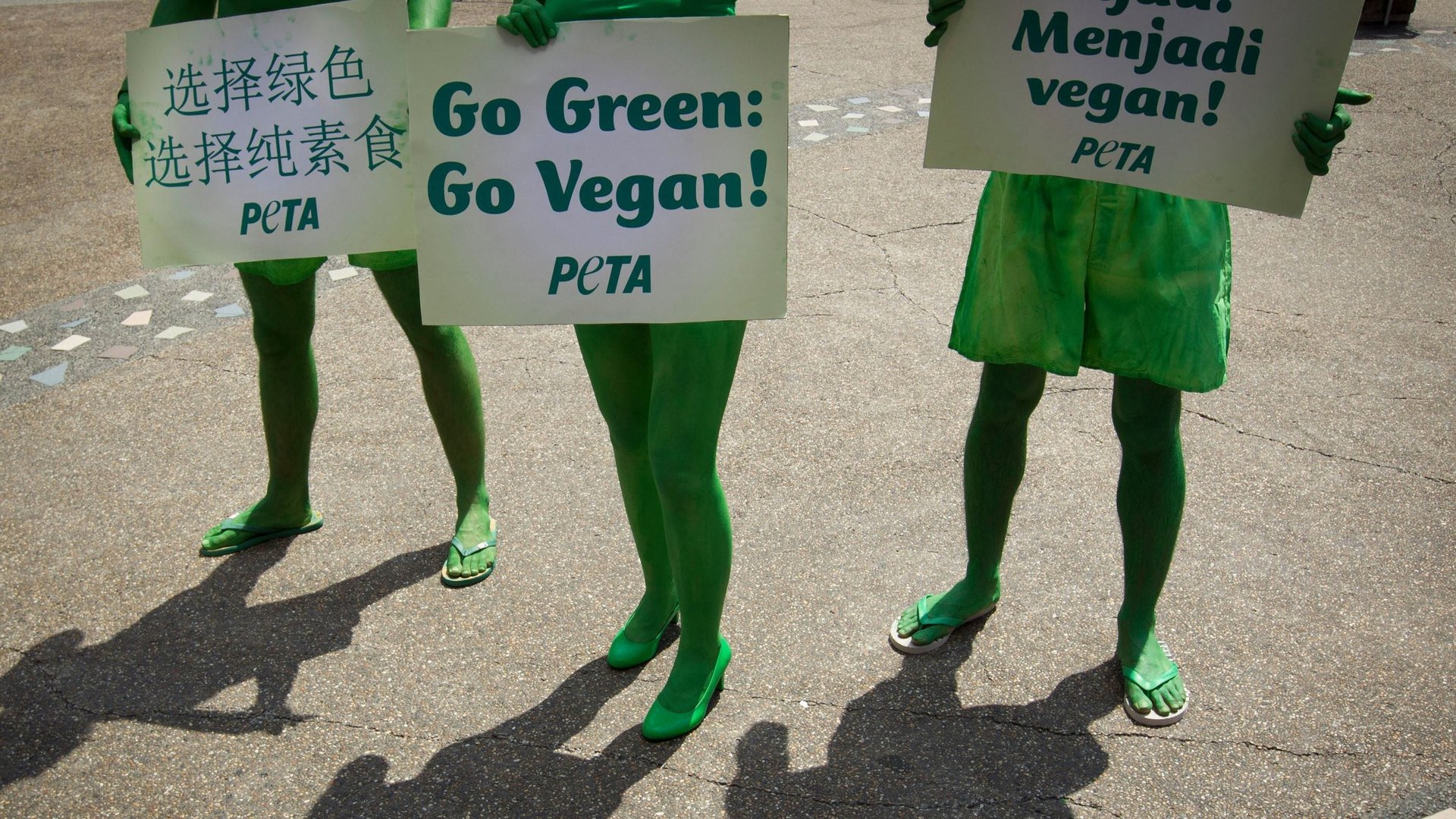Research suggests that vegans really are more judgmental than vegetarians
Not every winner wants a chicken dinner: A growing number of diners are eschewing meat for environmental, health, and moral reasons, at least some of the time. While the number of vegetarians has remained relatively stable in the US over the past two decades, sales of vegan products have soared.


Not every winner wants a chicken dinner: A growing number of diners are eschewing meat for environmental, health, and moral reasons, at least some of the time. While the number of vegetarians has remained relatively stable in the US over the past two decades, sales of vegan products have soared.
A recent Gallup poll found that about 8% of Americans identified as either vegetarian (no meat) or vegan (no animal products including dairy, eggs, sometimes honey, and even avocados). Among people younger than age 50, that ratio jumps to 10%. And that doesn’t take into account conscientious eaters who regularly observe meatless Mondays or food writer Mark Bittman’s “part-time vegan” lifestyle.
As a wider swath of consumers make the choice to limit the amount of animal products in their diets, a more nuanced picture of diet and identity is emerging. A 2018 study that the journal Food Quality and Preference will publish in March 2019 found that despite similar dietary choices, vegetarians and vegans have very different views about their own diets and those of others.
Vegans, it turns out, really are judging you for that side of bacon.
The study, titled “A comparison of dietarian identity profiles between vegetarians and vegans,” surveyed 167 self-identified vegetarians and vegans. Researchers asked participants to rate statements such as, “I feel that I have a moral obligation to follow my dietary pattern” and “From time to time, I eat foods that go against my dietary pattern” using a scale from one (strongly disagree) to seven (strongly agree).
While vegetarians and vegans self-reported similar levels of dietary strictness—how likely they were to stray from their chosen diet—the two groups differed significantly in other areas. Vegans derived a greater sense of identity from their diet than vegetarians, felt more strongly aligned with other vegans, and both felt more judged by others for their dietary choices and had lower regard for omnivores than vegetarians did.
The judgmental vegan stereotype got a boost earlier this year when Moby, a wealthy, white musician, wrote an op-ed in the Wall Street Journal chastising poor people for using Supplemental Nutrition Assistance Program (SNAP) benefits to buy “junk,” including processed meat. Telling millions of SNAP recipients how they should eat is certainly an example of what the study terms “lower out-group regard.”
Daniel Rosenfeld, the study’s author, points out that it isn’t just limited in size, but also scope. His research looks at how important vegetarians and vegans believe diet is to their identities. It doesn’t investigate why or how that came to be.
“Do vegans exhibit higher levels of prosocial and moral motivations than do vegetarians because people with these motivations are more likely to go vegan or because going vegan makes people more prosocially and morally motivated?” he asks, calling for further research. It’s a classic chicken and egg issue.